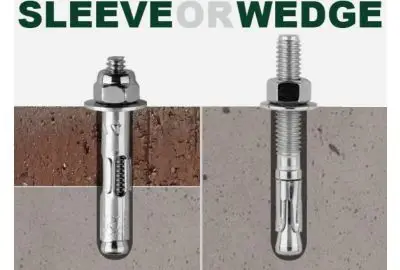Top Manufacturers of 1 4 Lag Bolts for Quality Fastening Solutions
តុលា . 04, 2024 23:16 Back to list
Top Manufacturers of 1 4 Lag Bolts for Quality Fastening Solutions
Understanding 1% and 4% Lag Bolts A Manufacturer's Perspective
Lag bolts, commonly referred to as lag screws, are a type of fastener used to affix wood to wood or other materials like metal and masonry. Their unique design features a coarse thread that provides a strong grip, making them ideal for heavy-duty applications. In the manufacturing of lag bolts, specifications such as diameter—typically 1 and 4—play a crucial role in determining their use in various construction and manufacturing processes.
The Importance of Lag Bolts
Lag bolts are essential in building and construction, particularly in framing, decking, and anchoring structural components. They provide better torque and holding power compared to standard screws, making them the preferred choice for tasks that require load-bearing stability. The inherent design, which allows for a greater surface area of contact, is advantageous in securing materials together, allowing for long-lasting durability in outdoor environments where moisture can degrade weaker fasteners.
Manufacturing Process
Manufacturing lag bolts involves several key steps to ensure quality and reliability. The process begins with selecting the right materials, often high-quality steel or stainless steel, which are known for their strength and resistance to corrosion. The raw materials are then shaped and threaded using advanced machinery.
For 1 and 4 lag bolts, precision is critical. Manufacturers must ensure that the threads are correctly cut and that the bolts are symmetrically formed to allow for easy driving and a secure fit. After forming, the bolts typically undergo a heat treatment process to enhance their strength. This is followed by surface finishing processes such as plating or coating to prevent rust and increase longevity, especially for bolts designated for outdoor use.
1 4 lag bolts manufacturers

Quality Control
Quality control is vital in the manufacturing of lag bolts. Each batch undergoes rigorous testing to ensure they meet industry standards and specifications. Manufacturers often conduct tensile strength tests and corrosion resistance assessments to guarantee that the lag bolts can withstand the physical demands of their intended applications. This diligence in quality assurance not only helps in building a trusted brand but also protects customers from the potential risks associated with faulty fasteners.
The Market for Lag Bolts
As construction activities continue to rise globally, the demand for reliable hardware, including lag bolts, remains strong. Different sectors, including residential, commercial, and industrial, require lag bolts in varying specifications, making it essential for manufacturers to diversify their product lines. The growing preference for eco-friendly materials has also prompted some manufacturers to explore alternative materials, including recycled metals, to appeal to environmentally-conscious consumers.
Conclusion
In summary, the manufacturing of 1% and 4% lag bolts is a critical process that supports a myriad of construction applications. From the initial selection of materials to the final quality checks, each step is essential in ensuring the strength, durability, and reliability of these fasteners. As the construction industry evolves, so too does the technology and techniques used in lag bolt manufacturing, paving the way for innovation and enhanced performance. As we look toward the future, the importance of high-quality lag bolts will only continue to grow, underscoring the need for manufacturers to maintain high standards and adapt to changing market demands.
Latest news
-
Wire Bolts Suppliers: Durable & Reliable Fasteners for Every Project
NewsAug.25,2025
-
Premium Cabinet Bolts Supplier | Wholesale & Custom Solutions
NewsAug.24,2025
-
Reliable Axle Nuts Supplier | Quality & Precision Fasteners
NewsAug.23,2025
-
Durable Bolts for Lawn Mower Handle - Top Supplier & Manufacturer
NewsAug.22,2025
-
High-Quality Bolts for Lawn Mower Handle Supplier & Manufacturer
NewsAug.21,2025
-
Reliable Axle Nuts Supplier | High-Quality Automotive Parts
NewsAug.19,2025
